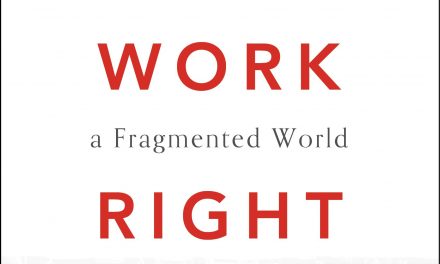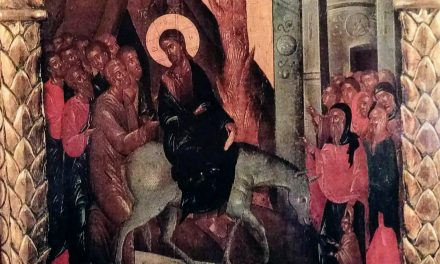If our readers are discouraged by the slow pace of posting here, it’s not that there aren’t plenty of interesting things going on. For example, a WaPo editorial trying to make a case for capital punishment in Norway. Or Commonweal’s response to Rep. Paul Ryan’s “moves” in a more Thomist direction.
But where are we? I suspect we are grading and doing all the other things that constitute end-of-semester craziness for college professors. The bloggers here are academics, and so our life runs in certain cycles. We are often driven by the news cycle. We think about what’s going on in government. But in fact, most of my life is taken up with what’s going on in my classrooms. The academic cycle, the end of a semester of classes, always gives a chance to look back, see what worked and what didn’t, and what we saw in our students this past year. So why not blog about that?
I had two sections of a theology course on marriage and family. They were mostly filled by non-theology students. 9 of the 50 stated in anonymous opening-day surveys that premarital sex was “never OK” (the others: “sometimes OK”). Mostly Catholic. The course used Familiaris Consortio as a backbone, adding on some historical material, some sociological, study of marriage and family in American society, an “overture” of C.S. Lewis’ The Four Loves, and a heavy dose of social mission via my fellow blogger Julie Hanlon Rubio’s Family Ethics. Did it work? Ordinarily, this is a pretty good “required theology” to teach. This is because, as all the data show, the vast majority of students aim at a successful, stable, lifelong marriage with a loving spouse and a few kids. They are basically “buying” what the course is “selling” – though the challenge is always when we get down to specifics. Nevertheless, the students care. This semester, I wished that there were more ways the Church would engage conversationally this deep desire, helping students to see all the ways in which the Catholic tradition might have much to say, beyond “no.” Because they do want it. One student, when we were discussing issues of service and how service can become an activity that expresses regular solidarity instead of just occasional sporadic action, said from a small group, “This class makes us think too much! We go back to our dorm rooms and have long philosophical conversations!” Success!
My other course was our departmental senior seminar, with senior theology majors (9 wonderful people with bright futures). Our senior seminar is structured around the major documents of Vatican II – we read the four constitutions in their entirety, and also the declarations on religious freedom and non-Christian religions. I supplemented the documents with examples – both prior to and subsequent to the Council – that relate to the documents. A couple chapters of Henri de Lubac paired with Lumen Gentium. John Courtney Murray paired with Dignitatis Humanae. I position the course by reading Peter Steinfels and Cardinal George – that is, by trying to get the students to read these documents in the context of a church polarized, but with the hope of transcending that polarization. Interestingly, the concluding day – with Nostra Aetate, and two essays, one by Paul Knitter, the other by Cardinal Joseph Ratzinger – proved to be one of the most illuminating. Students found themselves struggling (constructively) with what they saw as problems in both positions.
I’ve taught this seminar two years running. I love the material. But (unlike my marriage course), I have to admit I’ve mostly been depressed by it. Why? The students tend to fall on one side of the “polarization” or the other (a perfect storm last year) – but there are very few concrete models of genuinely transcending it. That is, in the discussion, we are constantly falling back into the easy constructions of left and right – even when reading someone like de Lubac (or the documents themselves!), which really do push beyond it. I am left sometimes concerned that “beyond polarization” can lead to brilliantly beautiful theology, but cannot be “translated” down to undergraduate majors and to the parish.
I’d hazard that it because we haven’t come to grips with the disconnect between “buying” and “selling” on this one. I’m pretty convinced that Vatican II is offering an sacramental, eschatological communalism – and students are much more likely to think about Catholicism either in therapeutic terms (“what does it do for me”) or otherworldly terms (“this is the way to heaven”). Either conception is profoundly individualistic, and profoundly misses the notion of the Church as sacrament.
Another semester in the fields, some grain harvested, some seeds sown, some problems noted. That’s what we do.




David rightly writes: “But where are we? I suspect we are grading and doing all the other things that constitute end-of-semester craziness for college professors. The bloggers here are academics, and so our life runs in certain cycles. We are often driven by the news cycle. We think about what’s going on in government. But in fact, most of my life is taken up with what’s going on in my classrooms.” In addition, many of us are married and a number of us also have children; moreover, on the academic side, many of us have deadlines at this time for publishing commitments (articles, book reviews, book chapters, and even books) and papers to write for upcoming conferences (both the College Theology Society and the Catholic Theological Society of America). Plus some of us have lawns to mow, a plumber or an air conditioning service technician to watch as they do their thing in our house. Etc., etc. In short, we’re human beings, too.
” I am left sometimes concerned that “beyond polarization” can lead to brilliantly beautiful theology, but cannot be “translated” down to undergraduate majors and to the parish.”
I think this is a really, really great point. So is the therapeutic/eschatological point. I think you’ve diagnosed it, at least a big part of it – but where to go from here? Is it that students (and others) need to see examples of people who try to live this way? And if so, how would we go about doing that?
I too am struck by the bit Jana quoted, ” I am left sometimes concerned that “beyond polarization” can lead to brilliantly beautiful theology, but cannot be “translated” down to undergraduate majors and to the parish.”
Working with high schoolers, this is my biggest fear. For many if not most of them, the ministry I coordinate will be their last formal education in Catholicism, and they are just beginning to be cognitively capable of understanding concepts in a way that makes moving “beyond polarization” possible. At the same time (and I’m sure you can relate), so many of them carry misinformation or a total lack of information which has to be remedied at the same time, without letting everything collapse into (gasp) relativism or a misapplication of “love and do what you will.”
The good news is I don’t have to grade or publish, and I’m encouraged to “outsource” my teaching responsibilities. :] Prayers for all you good professors out there, especially Dr. Cloutier. I can’t believe it was four years ago already that the inaugural senior seminar was coming to a close, and I was headed off to grad school…